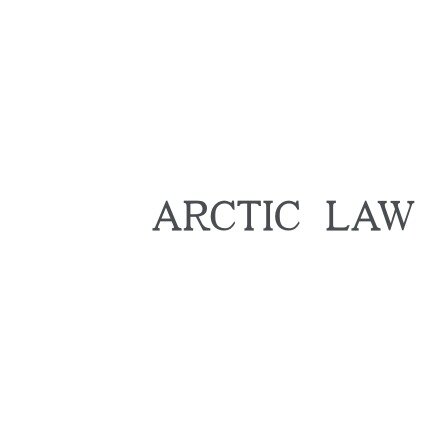Best Admiralty & Maritime Lawyers in Greenland
Share your needs with us, get contacted by law firms.
Free. Takes 2 min.
Or refine your search by selecting a city:
List of the best lawyers in Greenland
About Admiralty & Maritime Law in Greenland:
Admiralty & Maritime law in Greenland governs the legal issues and disputes that arise in the maritime domain, including marine navigation, shipping, and marine insurance. Greenland's unique geographical location makes Admiralty & Maritime law especially important for the country's economy and livelihood.
Why You May Need a Lawyer:
You may need a lawyer specializing in Admiralty & Maritime law in Greenland if you are involved in disputes over maritime contracts, shipping accidents, marine pollution, or salvage operations. These situations can be complex and require legal expertise to navigate effectively.
Local Laws Overview:
Greenland's Admiralty & Maritime laws are primarily governed by the Danish Maritime Act, as Greenland is a self-governing territory within the Kingdom of Denmark. The regulations cover areas such as maritime liens, vessel registration, collision, and salvage, among others.
Frequently Asked Questions:
Q: What is the process for filing a maritime lien in Greenland?
A: To file a maritime lien in Greenland, the claimant must provide notice to the vessel's owner, operator, or agent and may need to follow specific procedures outlined in the Danish Maritime Act.
Q: How are maritime disputes resolved in Greenland?
A: Maritime disputes in Greenland can be resolved through negotiation, mediation, arbitration, or litigation in the Greenlandic courts or Danish Maritime and Commercial Court.
Q: Are there any limitations on liability for maritime claims in Greenland?
A: Yes, there are limitations on liability for maritime claims in Greenland under the Danish Maritime Act, which may vary depending on the type of claim and circumstances of the incident.
Q: What are the requirements for vessel registration in Greenland?
A: Vessels must be registered with the Danish Ship Register, which includes specific requirements for ownership, tonnage, and compliance with international conventions.
Q: How is marine pollution regulated in Greenland?
A: Marine pollution in Greenland is regulated by the Danish Environmental Protection Agency, which enforces laws on discharges, waste management, and environmental protection in maritime activities.
Q: Can I recover salvage costs in Greenland?
A: Yes, if you have performed salvage operations in Greenlandic waters, you may be entitled to salvage awards under the Danish Maritime Act.
Q: What are the common types of maritime contracts in Greenland?
A: Common maritime contracts in Greenland include charter parties, bills of lading, marine insurance policies, towage agreements, and shipbuilding contracts.
Q: What steps should I take in the event of a shipping accident in Greenland?
A: In the event of a shipping accident, you should report the incident to the relevant authorities, preserve evidence, and seek legal advice to protect your rights and interests.
Q: Can I enforce foreign maritime judgments in Greenland?
A: Foreign maritime judgments may be enforced in Greenland under the rules of international conventions, reciprocity agreements, or domestic laws, subject to certain conditions and procedures.
Q: Are there specific regulations for fishing vessels in Greenland?
A: Yes, fishing vessels in Greenland are subject to regulations on licensing, quotas, safety standards, and environmental conservation measures to ensure sustainable fishing practices in Greenlandic waters.
Additional Resources:
For more information on Admiralty & Maritime law in Greenland, you can contact the Danish Maritime Authority, the Greenlandic Bar Association, or legal experts specializing in maritime law in Greenland.
Next Steps:
If you require legal assistance in Admiralty & Maritime law in Greenland, we recommend consulting with a qualified maritime lawyer who can provide expert advice and representation tailored to your specific needs and circumstances.
Lawzana helps you find the best lawyers and law firms in Greenland through a curated and pre-screened list of qualified legal professionals. Our platform offers rankings and detailed profiles of attorneys and law firms, allowing you to compare based on practice areas, including Admiralty & Maritime, experience, and client feedback.
Each profile includes a description of the firm's areas of practice, client reviews, team members and partners, year of establishment, spoken languages, office locations, contact information, social media presence, and any published articles or resources. Most firms on our platform speak English and are experienced in both local and international legal matters.
Get a quote from top-rated law firms in Greenland — quickly, securely, and without unnecessary hassle.
Disclaimer:
The information provided on this page is for general informational purposes only and does not constitute legal advice. While we strive to ensure the accuracy and relevance of the content, legal information may change over time, and interpretations of the law can vary. You should always consult with a qualified legal professional for advice specific to your situation.
We disclaim all liability for actions taken or not taken based on the content of this page. If you believe any information is incorrect or outdated, please contact us, and we will review and update it where appropriate.
Browse admiralty & maritime law firms by city in Greenland
Refine your search by selecting a city.











